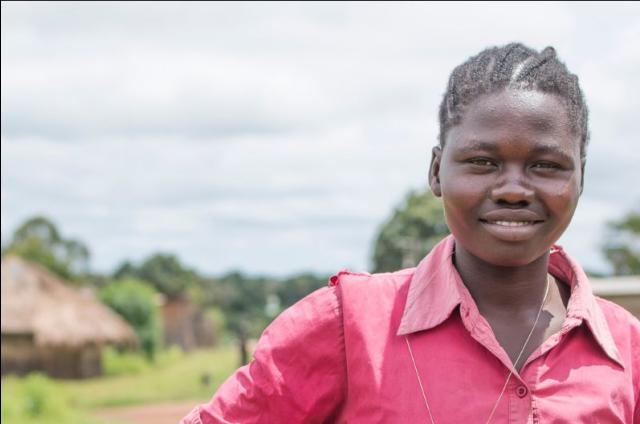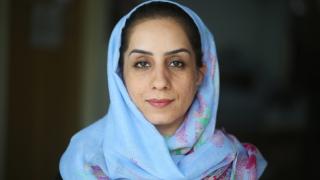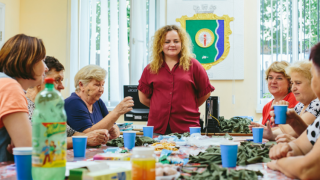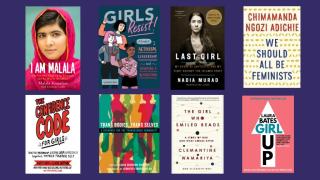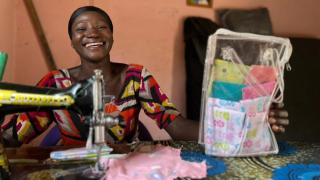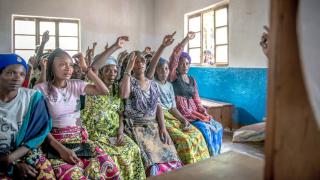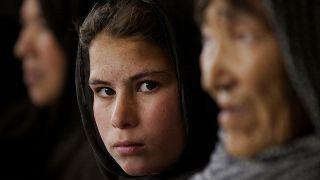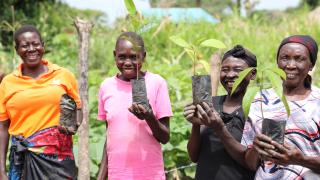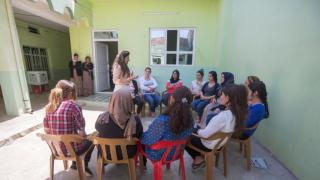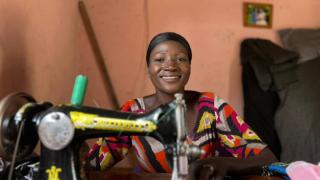From Conflict to Collaboration: A Couple's Transformation
From Conflict to Collaboration: A Couple's Transformation
The journey of two graduates of our programme, Mawa and Jackline, finding peace through our programme
Mawa and Jackline have been married for six years. They live in Wuluturu, Yei River County, South Sudan, with their two children. Their marriage was on the brink of collapse when they were enrolled in our Couples Connect Pilot Programme.
Today, Mawa shares that they now live together in harmony. Here is his story.
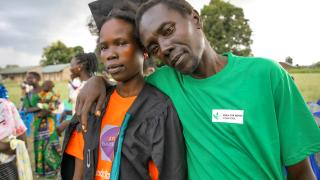
In my culture, being a man means being the head of the family. This title comes with responsibilities but also a lot of privileges.
As the head of my household, I was raised to be the sole provider and decision-maker. Everything I said or did was final. My wife wasn’t supposed to seek financial independence or earn a living; she was meant to stay home and take care of the family.
This belief shaped my expectations when I got married.
To my surprise and frustration, my wife was not the obedient woman I expected. She had a mind of her own and wanted to contribute financially. She would buy things for our home without my input, prepare meals with money I hadn’t given her, and even engage in small businesses and casual labour to make her own money. This independence didn't sit well with me. I was suspicious - where did she get the money? Why was she always away from home? Was she trying to compete with me or, worse, undermine my authority?
My suspicions turned to anger. I verbally insulted her and sometimes became violent. I threw away food she prepared with her own money and restricted her movements.
Our home became a battleground, and we became enemies living under the same roof.
One morning, my wife suggested we join the Couples Connect Programme with Women for Women International.
Initially, I was hesitant. But she mentioned that we might receive financial support if we attended together. Reluctantly, I agreed, motivated only by the prospect of money.
As we participated in the programme, something remarkable happened. We learned about teamwork, sharing responsibilities, effective communication, problem-solving and financial management.
Slowly, I began to understand and appreciate my wife’s efforts.
We started talking again, discussing business, farming and our children. I began supporting her business and we started working together. By the end of the programme, we received some capital, which we invested in her business.
Today, our lives are transformed. I can relax a little, knowing that I don’t have to shoulder every burden alone.
We are a team.
Recently, I developed an illness that affects my ability to walk or stand, making it difficult for me to work. My wife has become the primary breadwinner, contributing up to 70% of our family’s income. I now support her as best I can.
I am grateful to Women for Women International for this life-changing programme and for giving me another chance at love.
I am also grateful to my wife for being strong and persistent.
Without her, I don’t know how I would manage in my current condition.
To all women, I encourage you to support your husbands and not give up on your families. And to the men, I hope you learn from my experience: support your wives, and if you can’t support them, at least don’t stand in their way.
keep reading
With this global rollback of women’s rights, political polarisation, international aid cuts and the escalation of conflicts, the news provides a constant barrage of devastating images and negative statistics. It’s no wonder many of us feel angry and hopeless. Yes the women we serve, living in the world's most dangerous places, continue to dream and believe in a brighter future. Read their advice on how to hold onto hope.
Women’s History Month is a time to come together and celebrate the resilience, strength and achievements of women worldwide. Read our blog to discover the brands making a real impact - and how your support can help women worldwide find their power.
Women Holding Ukraine Together
subtitle:
Anna Orel from The Andreev Family Foundation, our partner organisation in Ukraine, shares her experience of war and supporting women - three years after Russia's full-scale invasion.
She shares: "This female strength inspires me. Even in the darkest times, there are people with light in their hearts."
According to the latest UN figures, 305 million people will require humanitarian assistance and protection this year – five million more than last year. Our watch list below outlines eight humanitarian emergencies that we believe need special attention in 2025, specifically for the women and girls impacted.
Shop with Purpose this Holiday Season
subtitle:
This holiday season, together with our partners we are inviting you to shop with purpose. From make-up and skincare to jewellery and fashion, find the perfect gift and help drive positive change for women worldwide, providing them with access to education, vocational training, and financial independence.
We are excited to announce the launch of Women for Women International's expanded Adolescent Girls Programme, an extension of our Stronger Women, Stronger Nations curriculum. In line with this mission, we've curated a selection of powerful books that resonate deeply with the themes of our Adolescent Girls Programme. These books connect to the rights of adolescents, addressing education, empowerment, resilience and activism. Happy reading!
More than two billion people around the world experience a period every month - but around 500 million cannot afford to manage them safely. Access to hygienic period products and safe spaces in which to use them is essential – as is our right to manage our periods without shame. Here’s how period poverty affects people in conflict – and what we can do to prevent it.
September marks a new beginning for many as students around the world return to school. The fresh scent of new notebooks, the anticipation of learning, and the joy of reuniting with friends are moments cherished by many. But for countless women and girls living in conflict zones, this simple joy is unattainable.
Since the Taliban’s return to power in Afghanistan in August 2021, Afghan women have experienced profound changes in their daily lives. The de facto government has reinstated many restrictions, severely limiting the rights and freedoms of women and girls.
Yet, in the face of these challenges, Afghan women have shown extraordinary determination and strength, finding ways to resist and adapt. Here, we explore five significant ways their lives have changed, highlighting both the difficulties they face and their ongoing fight for their rights.
Why is a climate justice lens important?
subtitle:
Nisha Singh, Senior Global Policy and Advocacy Manager, explains why Women for Women International uses a climate ‘justice’ lens to approach our programming and advocacy to strengthen women’s resilience at the intersection of conflict and climate shocks.
As we approach the tenth anniversary of the Yazidi genocide, we reflect on the remarkable journey of Yazidi women in our Stronger Women Stronger Nations programme, from conflict to realising their power. This milestone is not only a solemn reminder of the atrocities they faced but also a testament to their resilience and strength.
A deeper dive into our impact
subtitle:
2023 was a particularly challenging year for women survivors of war and conflict worldwide, with numerous ongoing and new crises impacting their lives. These global conflicts underscored the importance of our mission.
We're proud to share our impact with you, our global community, and are grateful for your steadfast commitment in helping us reach those who are often forgotten.

